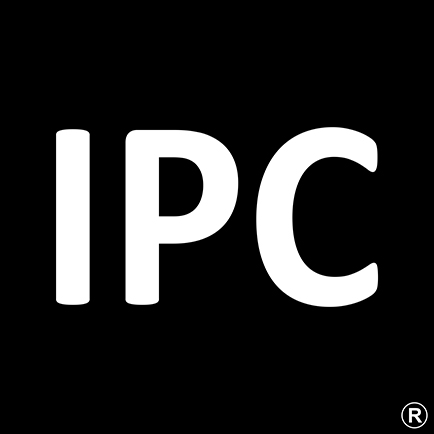Contact Us
Learn more about our products.
Get In Touch With Us Today
- +27-31-500-1755
- 21 Vulcan Place, Unit 6, Phoenix Industrial Park, Durban, 4068, South Africa
- PO Box 205, La Lucia, 4153, South Africa
Do you have a question?
At IPC, we are specialist manufacturers of PVC (i.e. Vinyl) compound in granule/pellet form, primarily for injection moulding and extrusion processes. We do not manufacture any other pellets and types of plastic.
Our sister-company Africa Roto Compounds manufactures Roto Grade LLDPE compound for rotational moulding processing.
We do not manufacture the following: PET, HDPE, LDPE PP, PC, Polystyrene, PE, ABS, TPR, PPMA.
Plastic Injection moulding is when the desired plastic raw material – PVC – is melted at desired temperature and state of viscosity where it can be injected from either 1 or multiple points into the mould. The mould for injection moulding is essentially filled by the material i.e. PVC compound. Items such as Gumboots, shoe soles, bath plug and floor tiles are all examples of plastic injection moulded products.
How is PVC made?
When it comes to PVC, it is important to know what exact process or part of the PVC chain you are referring to. There is the creation of PVC in terms of Polymer, PVC Resin in powder form and there is PVC Compound in granule form.
In essence, PVC is a thermoplastic with incredibly low crystallinity.
PVC Polymer
The creation of PVC begins with chlorine and ethylene which combines to create Ethylene Dichloride which then goes through a process called thermal cracking to create Vinyl Chloride Monomers (VCM). The VCM then goes through the process of resin conversion, also known as, polymerization which then creates what we know as Poly-Vinyl-Chloride (PVC).
PVC Resin
When PVC is in a powder form it is commonly known as PVC resin. PVC resin is commonly used in making of thermoplastics such as PVC compounds, which is the granules and pellets that you would see in manufacturing processes of PVC compounds or PVC products.
PVC Compound
Rigid PVC compound is essentially the combination of PVC powders, stabilizers, fillers, and additives which take the final form of solid and hard small granules/pellets. Flexible PVC compound is the combination of PVC polymer, plasticisers, stabilizers, and fillers additive which take the final form of softer granules/pellets or powder form with a combination of all the above additives
The manufacturing process of injection moulding is when the desired material – for example, PVC compounds/granules – is melted to a state of viscosity where it can be injected from either 1 or multiple points into the mould.
The manufacturing process of extrusion is when the desired plastic material is gradually melted in an extruder at desired and calculated temperatures and pressed through a die to form into profiles and tubes of any required length – for example, an aluminium window gaskets, wire or cable sheathing and pipes.
PVC Compounds come in various forms for a variety of applications and industries.
It is of vital importance to understand the key differences between the types of PVC Compound – or as some may know it PVC Granules/Pellets – before making your purchase. An important item to discuss with your supplier is the processing that the PVC will go through, e.g. extrusion or injection moulding to ensure the grade of the product suits processing type.
To get an easy understanding of the different types of PVC and what they can go into manufacturing, we can split it into three basic categories.
Flexible
A softer PVC compound carefully formulated and created to suit the manufacturing of “flexible” items such as footwear, gumboots, gaskets, irrigation products, tubes, hoses and cables.
Semi-Rigid PVC Compound
A PVC compound that is firm yet still has an element of flexibility which prevents the product from cracking or snapping. Applications that would require a semi-rigid PVC compound material could be items such as wire coating, gabions, fittings and floor tiles.
Rigid PVC Compound
A Rigid PVC compound would be for the purpose of manufacturing a hard and stiff product that has little to no room for flexibility. Items such as pipe fittings and pipes, appliance components, wall mounts or outlet boxes, bottles and containers, window frames and edge banding and many more!
PVC is highly durable because it is a non-abrasive, light material and stable. Additionally, It has non-corrosive properties, making it suitable for long-term use. It has a resistance to water and can be moulded or formed into different shapes or sizes.
PVC is an extremely safe material to use, with many practical applications as opposed to other types of plastic. This material is manufactured according to industry regulations and standards and must meet certain quality levels to be allowed for public use. For example, vinyl compounds can be used in footwear, healthcare, food, and beverage packaging.
Due to the high durability, longevity, and safety of PVC, it is quite versatile. The flexibility and make-up of PVC allow it to be made to specific requirements. So essentially, it can be as tough as you want it to be, and its thickness and weight are dependent on its use.
PVC is a highly recyclable plastic, and it can be processed several times and can have two to three new use functionalities. The recycling process does not affect its base, making it an essential material for sustainable and eco-conscious businesses.
PVC is also affordable because of how low-cost the material is. There is a minimal skill required for installation, and because of its durability, it makes for a fuss-free maintenance material.
It is important to understand the product that needs to be manufactured and the characteristics it should have. PVC is a good and safe plastic to use for a variety of items but depending on the product, it is also possible that PVC may not be the right choice. Here at IPC (Innovative Pvc Compounds) we have a team of experts that have years of experience in plastics, and specifically in PVC material who can advise if PVC is the right material for your requirements.
PVC is a diverse material which can be utilised for a variety of practices and procedures in the medical and healthcare industry. Polyvinyl Chloride (also known as PVC) as a type of plastic is used in the medical industry because it is cost effective for manufacturing of disposable items while still maintaining high quality for intimate human use. PVC is also easy to clean and sterilise and replace if required, making it a hygiene necessity in such environments. Both PVC raw materials and end products for the medical industry must follow strict manufacturing guidelines and protocols to ensure the utmost safety for the end user of the product. All additives must be of medical quality grade.
PVC comes in a variety of forms to suit various sectors and applications.
The most common forms are PVC pellets/granules, PVC dry blend/powder and emulsion/liquid PVC. These types of PVC are used in different sectors for different applications that are most suited for a particular form of PVC to manufacture a certain product.
IPC (Innovative Pvc Compounds) specialize in virgin grade PVC compounds in pellet/granule form and service a variety of industries and sectors that manufacture further products from our PVC compound material.


